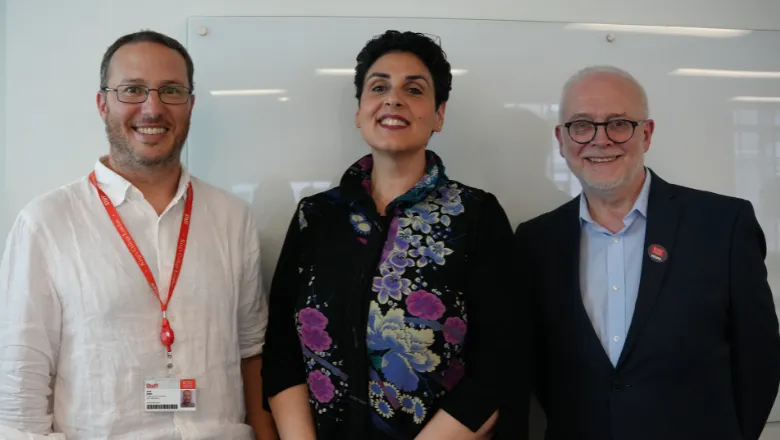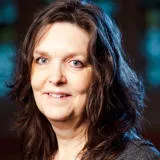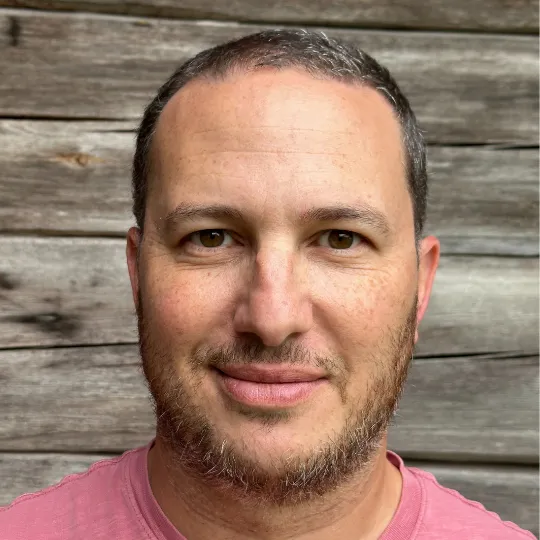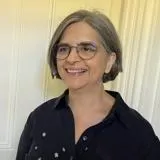Speakers debated the possibility of achieving true multilingualism in universities at the latest Language Debates event on 23 June, hosted by Language Acts and Worldmaking.
Although diversity in universities has increased, partly in response to widening participation initiatives, the issue of multiple languages is still missing from equality, diversity and inclusion statements across institutions.
As part of the Language Debates series by Language Acts and Worldmaking, this event posed the question: what would the multilingual university look and act like?
Language Acts and Worldmaking explores language as a 'material and historical force' in the world. We have always been interested in how languages circulate, in their contact zones, in how we communicate across language and culture. Our emphasis on the understanding of multilingualism in UK educational institutions allows us to put our research into work in our close environments and to ask ourselves how we can make the most of that richness.
Catherine Boyle, Director of the Centre for Language Acts and Worldmaking
Professor Emerita Debra Kelly from the University of Westminster, who is a Visiting Senior Research Fellow to the centre, co-chaired the debate, beginning by introducing her colleague Professor Terry Lamb.
As Professor of Languages and Interdisciplinary Pedagogy, Professor Lamb founded and leads The Multilingual University – A Westminster Learning Community, which aims to put the university’s multilingualism on the institutional agenda. Professor Lamb set up this learning community in response to the diversity in the university, which he felt offered opportunities to ‘be very excited about its multilingualism’.
Not everyone is quite so enthusiastic about multilingualism as I am. In most places I work it’s seen as a problem – something to be ignored or wished away.
Professor Terry Lamb, University of Westminster
Professor Lamb highlighted that teachers across Europe feel that any other language other than the one of the school of English get in the way of learning, but his research shows this isn’t the case. Instead, he proposes shifting to plurilingualism, where the presence of multiple languages is seen as normal and something to enjoy. He is leading this work at the University of Westminster by building a picture of the extent of language diversity in the institution.
There are seven considerations for creating a multilingual university that will help us to see ‘language as a resource for learning as well as a very important part of our identity’, said Professor Lamb:
- Understand the extent of our multi/plurilingualism
- Challenge monolingual habitus and the problemisation of bi- and plurilingualism
- Valuing our multilingualism and plurilingualism for everybody
- Ensuring that our linguistic landscape reflects our linguistic diversity
- Developing language sensitivity across our teaching
- Building our collaborations with language communities beyond the university
- Challenging linguistic discrimination
Cross-linguistic cooperation
Event co-chair Dr Ana de Medeiros, Director of King’s Language Centre, introduced Professor Jo Angouri, Professor in Sociolinguistics and Deputy Pro-Vice Chancellor for Education and Internationalisation at the University of Warwick to present her research.
Professor Angouri explored the European Commission’s commitment to transnational and multilingual collaboration, which aspires for all citizens to be able to speak two languages. However, Professor Angouri argues that this commitment refers only to nation state varieties of languages, ignoring that there are multiple varieties within what we would consider to be “one language”.
Languages are not socially and politically equal. They can be used as the arena for separating “us” and “them” – such as how the onus is on those who come new to prove good citizenship by speaking the language.
Professor Jo Angouri, University of Warwick
She proposed using alliances between universities as connected learning communities across linguistic divides, as ‘the more we create connections, the more students see themselves become members and belong’. This can help to build an inclusive ecosystem that shows the value of all languages.
She also shared her experience of creating MultiDev, an interdisciplinary research module open to all undergraduate students at the University of Warwick, which aimed to make students’ linguistic capabilities relevant to the learning journey. The project gave voice to large communities in universities and societies that are often silenced in policy documents and linguistic maps of Europe. Students worked comfortably in a multilingual environment, saying that it gave them new perspectives on language as something political, as well as legitimising their own linguistic skills.
Decolonising the university
In response to the arguments put forward, Dr Jarad Zimbler, Director of Research at the Global Cultures Institute, said Professor Lamb’s offer is ‘enticing’ for literary scholars – yet he questioned the ways in which theories of plurilingualism understand decolonisation merely as a demand for institutions that are inclusive, non-hegemonic and non-hierarchical.
The history of decolonisation requires addressing the idea of hierarchy head-on, said Dr Zimbler, who used the example of the University of Nairobi, where a proposal was put forward in 1968 to abolish the Department of English in favour of a Department of African Literatures and Languages. This proposal sparked intense debate about why English should be the central pillar for literary studies at the university.
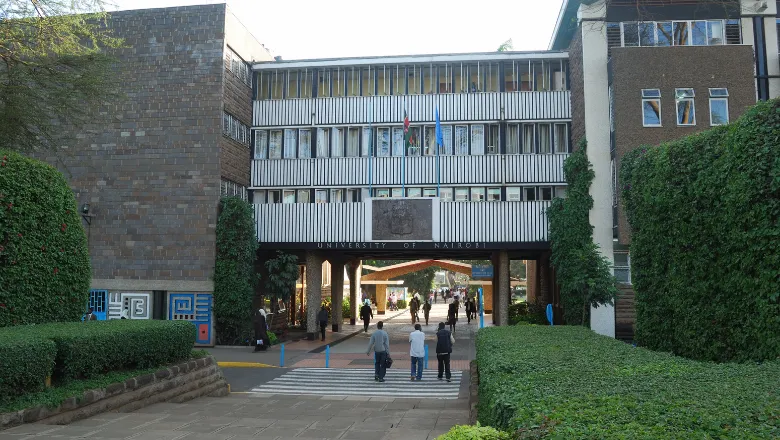 The University of Nairobi. (Image: Wikimedia/Wing)
The University of Nairobi. (Image: Wikimedia/Wing)The idea was not to reject English entirely, but to ensure that the focus of the institution was on languages and texts that were most relevant to students in an East African university. Dr Zimbler argued that this was still a hierarchical vision of the world, despite offering a different perspective for the creation of a new kind of department.
How do we incorporate a gesture that seeks to include a new hierarchy in place of the old?
Dr Jarad Zimbler, Director of Research, Global Cultures Institute
True linguistic diversity?
The debate was followed by an audience Q&A directed by Professor Kelly, in which people asked about whether multilingualism is diverse in terms of class, how it can be better embedded in humanities programmes at university level, and the concept of ‘translanguaging’ – switching between appropriate languages.
We perpetuate a framework of multilingualism that is important – but it’s not the only one.
Professor Jo Angouri, University of Warwick
To learn more about Language Debates by Language Acts and Worldmaking, sign up to the Global Cultures Institute newsletter.
About Language Debates
The Language Debates series fosters a dialogue on the traditions and innovations and the synergies and fissures within Modern Languages, Language Education and allied disciplines in the Humanities and Social Sciences.
About Language Acts and Worldmaking
Language Acts and Worldmaking is a flagship project funded by the AHRC Open World Research Initiative, which aims to regenerate and transform modern language learning by foregrounding language's power to shape how we live and make our worlds.
About the Global Cultures Institute
Even in a globalised world, we come into daily contact with limits and boundaries, which divide us in stark and sometimes harmful ways on the grounds of language, culture, community, and identity.
At the Global Cultures Institute, by fostering conversations that are profoundly interdisciplinary, we probe and articulate these boundaries, developing a critical understanding of their origins and development, and sharing this understanding through research, education and public engagement.
Shaping a space at King’s for debate that is generous and robust, we confront the challenge of intensifying divisions and seek ways to talk beyond boundaries.

